- Home
- Kristi Belcamino
Blessed are the Meek
Blessed are the Meek Read online
Blessed are the Meek
A Gabriella Giovanni Mystery
KRISTI BELCAMINO
Dedication
For my husband and two fierce daughters,
who are my everything.
Contents
Dedication
Prologue
Chapter 1
Chapter 2
Chapter 3
Chapter 4
Chapter 5
Chapter 6
Chapter 7
Chapter 8
Chapter 9
Chapter 10
Chapter 11
Chapter 12
Chapter 13
Chapter 14
Chapter 15
Chapter 16
Chapter 17
Chapter 18
Chapter 19
Chapter 20
Chapter 21
Chapter 22
Chapter 23
Chapter 24
Chapter 25
Chapter 26
Chapter 27
Chapter 28
Chapter 29
Chapter 30
Chapter 31
Chapter 32
Chapter 33
Chapter 34
Chapter 35
Chapter 36
Chapter 37
Chapter 38
Chapter 39
Chapter 40
Chapter 41
Chapter 42
Chapter 43
Chapter 44
Chapter 45
Chapter 46
Chapter 47
Chapter 48
Chapter 49
Chapter 50
Chapter 51
Chapter 52
Chapter 53
Chapter 54
Chapter 55
Chapter 56
Chapter 57
Chapter 58
Chapter 59
Acknowledgments
About the Author
By Kristi Belcamino
Copyright
About the Publisher
Prologue
San Francisco Bay Area, 1987
HEADLIGHTS ILLUMINATE A small group huddled around a figure on the ground.
Waves slap against concrete, and seagulls silently glide on the wind, white specters in the night. Fog hovers low in stringy fingers billowing across the deserted parking lot.
Heads swivel at tires crunching on loose gravel. A car stops about a hundred yards away. A man in the middle of the group whips his body toward the light and sound. A flash of metal in his hand glints in the headlights before they shut off.
“Who the fuck is that? Who the fuck is that?” The man screams, on the verge of hysterics. “Oh motherfucker, we’re so fucked. I knew we were fucked. This is so bad.” The man paces, putting both hands up to his face.
Another man grabs him from behind.
“Don’t worry. He’s one of us. He’s with me. It’s all good, calm down.”
“What do you mean calm down?” the man shouts. “She’s fucking dead! It wasn’t supposed to happen this way. Nobody was supposed to die. What the fuck? What the fuck? What are we going to do?”
A larger man storms over, sticks his gun to the man’s forehead, and in a low voice growls, “If you don’t calm down . . . I’ll take you out myself. Here’s what we’re going to do. Listen carefully, or you’ll get the first bullet.”
Nobody moves. The larger man prods the smaller man along, holding the gun to his temple. “Now, take your gun, aim it, and fire.” The two men are now standing above the dark mound on the ground. The bigger man pushes his gun harder into the smaller man’s temple. “What the fuck are you waiting for, man. Do it. Either you pull the trigger, or I do.”
“I can’t,” the man says with a sob.
The larger man shoves his gun into the guy’s mouth.
“Do it. We’re all going to do it.”
“I can’t,” the man says around the muzzle of the gun. Snot drips down his nose.
“Don’t get your fucking boogers all over my piece. Fire your goddamn gun now.”
The man shakes. He closes his eyes, as if anticipating the explosion in his mouth.
“Fire your weapon,” the man says in a low voice. “Now.”
The roar of a gun exploding behind them breaks the silence. All heads turn toward the sound. A dark figure steps back into the circle and looks around. “Okay. Who’s next?”
The other two men step forward, taking turns firing into the mound at their feet.
“Okay, dickwad,” says the big man after he pulls his gun out of the smaller man’s mouth and fires his own weapon into the mound. “You’re the last one. Your turn. I’m tired of waiting. You either pull the motherfucking trigger, or I pull mine. I’m not going to tell you again.” The click of the safety coming off echoes in the silence.
The man trembles as he leans forward. He turns his head away as he squeezes metal to metal. The shot echoes in the darkness. He drops the gun as if it were a lit match and collapses onto his knees, keening and weeping. “It wasn’t supposed to be like this. This was never supposed to happen. This is a fucking nightmare. Oh God, forgive us, please. Forgive me.”
The man leans over, retching and vomiting. A dim streetlight illuminates the contents of his stomach splashing up from the ground.
“Okay, now, now, it’s all better.” The big man reaches down and pats the other’s head. “Watch out for my shoes. They’re frickin’ Kenneth Cole. See, now, it’s all better. Now, we’re all in this together.”
“Yeah,” another guy mutters. “We’re all in it together—up to our motherfucking eyeballs.”
Twenty feet away, the driver of the car clenches his gun but is frozen.
A look of horror blankets his face.
Chapter 1
San Francisco Bay Area, 2002
EVERY ONCE IN a while, a breeze lifts the white plastic sheet off the naked body lying in the dirt at my feet. When the wind blows, I catch snapshots of a man’s very fit, very naked, and very dead body. I try not to stare. But I can’t keep my eyes off it.
Besides, it’s my job to look.
I don’t want to bring attention to myself by whipping out my reporter’s notebook and taking furious notes, but inside I am mentally recording everything I see and hear.
The body lies in a patch of weeds on the side of the rural California highway and is circled by half a dozen pairs of shoes, including the round toes of my black patent leather pumps. A mix of California Highway Patrol officers and local street cops gather in a ring around the dead man. They chat about the sheriff’s race and wait for the tow truck to haul the man’s car out of the creek bed at the bottom of a steep ravine.
I see the body in flashes as the sheet rises and falls in the wind: A lock of blond hair. Long dark lashes. Full sensuous lips. Smooth, tan chest. Defined abs. Narrow hips. Brief glimpses of flesh are revealed as one officer repeatedly reaches down and pulls the sheet back over the body without pausing in his conversation or taking his eyes off his colleagues. Cars whizz by the wide, dirt shoulder where we stand. I seem to be the only one flustered by the corpse in our midst, but I try to play it cool. If I act like one of the guys, they’ll forget I’m a reporter.
I keep waiting for the cops to shoo me away, but they don’t. It’s a car crash, not a crime scene. Guess that’s why the cops are letting me in for the close-up while I wait for the public-information officer to arrive. That, and the fact that the sergeant in charge knows me—he lets me buy him lunch every once in a while on the newspaper’s credit card.
The wind flutters the sheet again. The breeze brings with it the
heavy scent of wildflowers from a nearby hill. It seems incongruous with the dead body at my feet. I slit my eyes and look down again. A strong gust of wind takes the sheet completely off, so it puddles at one officer’s feet. This time when he crouches, he anchors the sheet with a few rocks.
“Hey, Sarge,” I say. “Don’t you think it’s strange there’s not blood?”
“I think it’s more strange he’s bare-ass naked, but who am I to judge? Different strokes for different folks,” Sgt. Craig Markson says. “Besides, there’s blood all right—on the back of his head.”
He puffs out his chest a bit. I get the feeling he’s showing off a little by “instructing” the girl reporter on the intricacies of death. “Most die from what you don’t see. It looks like they are napping, but inside, the aorta is severed from the heart. That’s the way most of ’em go.”
Markson is a suffer-no-fools city cop who has probably investigated hundreds, if not thousands, of fatal car crashes during his twenty years on the force. His days at the gym were long ago replaced by visits to the all-you-can-eat buffet, but his eyes are usually crinkled in a smile. He’s always done right by me, so I don’t take his words as patronizing.
“Guess I expected more blood,” I say.
“Sometimes there is. Sometimes it’s a freakin’ horror show when we show up.”
I nod. I once watched blood seep in rivulets out of a smashed passenger door as a tow truck hoisted it into the air.
“Sarge, you got the name?” I say it casually, but in my head, I’m crossing my fingers.
I want to get a jump start on my story. Usually, a traffic fatality is a short story in the paper with the victim’s name. That is, unless it is someone famous. The San Francisco Bay Area has its fair share of celebrity faces. Music Promoter Bill Graham died only a few miles from here when his helicopter went down in a storm. It’s always worth checking. You wouldn’t want to be the newspaper reporter caught writing a two-inch brief about a car crash victim who was the latest American Idol star or something. This one might be worth more than a paragraph simply because the guy was driving around naked. Although it’s not the first time I’ve written about nude drivers. The last naked guy I wrote about was drunk and masturbating when he caused a four-car crash.
Markson flips through his own tiny notebook. “You know, Gabriella, I trust you, so don’t burn me—don’t go with this until it’s confirmed. If he was driving his own vehicle, then it shows it was registered to Sebastian Laurent, thirty-four, San Francisco.” Then he winks at me, and says, “Plus, that’s what his license says, too.”
I lean over his shoulder and make sure I get the spelling of the name right. “Thanks, Sarge.”
A few minutes later, the coroner’s rig—an extra long, unmarked, windowless van—pulls up. Two deputies, dressed in navy jumpsuits with the word CORONER on the back, open the van’s doors and unfold the gurney’s wheels. The tow-truck operator, cranking a wench, finishes pulling the car out of the ravine. It’s a fancy black car. I hear a low whistle from one of the cops. Everyone turns to look.
“Fucking nice ride,” someone says under his breath.
“Lamborghini?” another cop says, squinting as he looks at the car, which has mud adhering to all four tires.
“Nope,” another cop says. “That beauty is a McLaren F1. Fastest and most expensive car in the world.”
A highway patrol officer is crouched down looking into the open door of the car—which is pointed up in the sky like a wing—when he yells, “Hey, Markson, come take a look at this.”
With a frown, Markson hitches up his gun belt and walks over. I follow him, trying to be unobtrusive. The officer is pointing to a small shiny thing on the sleek black leather seat. It looks like a bullet casing. Markson’s forehead crinkles as he looks at it. He turns to where the coroner’s deputies are transferring the body onto a gurney.
“Hold up, guys.” When he gets to the body, he looks at a coroner’s deputy. “Do me a favor, buddy, turn him over. On his stomach.”
The deputies flip the body facedown onto the gurney.
Markson pulls on some latex gloves and leans over. He pushes aside a patch of bloody, matted blond hair. Even from a few feet away, I see it. A bullet hole.
“I’ll be goddamned.” He is shaking his head. He picks up the man’s floppy hands and examines both sides, one by one. I didn’t notice before, but now I see that fingernails on both hands are bruised a purple-black, and the knuckles are scabbed over.
“What the hey?” Markson says. He probes the fingers and palms of the hand. “Huh. He must have got in a fistfight with a brick wall or something recently, but I don’t see no residue,” he mutters to himself. He looks over at one of the detectives walking back from the car. “Any gun?”
“No, Sarge. Car’s clean. Nothing but his clothes and these.” He dangles a pair of lacy red panties from one finger. A few people snicker.
Markson hitches up his pants again and turns to another officer. “Call homicide.”
I’m trying not to be obvious as I pull my notebook out and fire off some scribbles. But I’m not sneaky enough. Beneath a furrowed brow, Markson’s eyes meet mine.
“Gabriella, get the hell out of here,” he says, and turns to the cop beside him. “Get out the tape, string it up, and mark it off. We got ourselves a crime scene here, folks.”
Chapter 2
SEBASTIAN LAURENT WAS a dot-com millionaire. Megarich. Back at my desk at the Bay Herald, the news research department gives me an address for him in a posh area of San Francisco known as Ashbury Heights.
The executive editor, Matt Kellogg, swings by my desk as I’m writing my story. He’s a huge man, and I crane my neck to look up at him. I’m five-six, and I think I only come up to his armpits. He had a chance to move into an office when he was promoted last year, but he prefers to stay out on the newsroom floor with his “troops.” I can’t see why. He barely fits into our tiny cubicles. If he flexed his legs, I bet the desk would either topple or shatter into plastic shards. He leans over my small cubicle wall, and it bends from the weight of his arms.
“What you got, Giovanni?” he says, and strokes his beard.
“So far, not much,” I say, shaking my head in frustration. “I can describe the accident scene, but homicide has clamped down on any more details. Their press release is only two paragraphs long. I’m digging up background on Sebastian Laurent and his company. His public-relations department released some info, but I don’t have anything about his personal life. My sources at the morgue say his whole family lives in France and haven’t said when they’ll arrive to claim the body.”
“France, huh?” Kellogg says. “Well, finish up this story, then Coleman wants you to start working on a follow, more of a feature, to run next Sunday.”
“Why does the publisher care?”
“Guess they served on some artsy-fartsy board or something a few years back. Paulson over in business is working his sources. He’ll feed you what he learns. Get something on Laurent’s personal life. Work your sources. Figure out why someone wanted him dead.
“And, Giovanni, try to get someone to make a stab at explaining why the hell the guy was driving around buck naked.”
“He didn’t start out that way. I’m sure whoever was wearing those lacy red panties had something to do with getting his clothes off him.”
Kellogg snickers and stands up. The cubicle wall flexes back to its original height before he turns and lumbers away.
John Stanford hollers across the room, “Hey, Giovanni, heard you got a close-up of Sebastian Laurent in the buff. Was it worth a million dollars?”
I have no idea what he’s talking about and am too busy to care. I don’t even look up. But the investigative reporter walks over and drops a copy of San Francisco By-the-Bay Magazine on my desk. The cover shot shows Laurent in his Sp
eedo walking out of the surf. A surfboard is tucked under one arm. The headline says, “Sebastian Laurent turns down million-dollar Playgirl spread—says he didn’t want to embarrass his Parisian grandmother.”
I add it to the stack of information on Laurent that news research has dropped off at my desk.
The familiar hum of the newsroom gets louder as more reporters come back from the field and settle at their desks. The musty smell of the newsroom, like moldy paper, burned broccoli, and old books, is comforting. The energy in the room builds as it gets closer to deadline. I hear bits of phone conversations mingling with static and voices piping out of the two police scanners stacked on my desk. After working as a police reporter here for six years, I’m pretty damn good at being able to tune into an urgent voice on the police scanner versus routine radio traffic.
It’s the best beat at the paper. The crime beat has everything any reporter could want: stories of intense heartache, drama, and excitement mixed with tales of love that never dies.
And if you dig deep enough, you can often find the beauty in tragedy. For every story that crosses my desk, I make sure I dig. And I make sure people talk. Although I would never trade it for currency, my own tragedy is never far below the surface and could easily be a bargaining chip to get others to open up to me. But I would never trade my own heartache for a story.

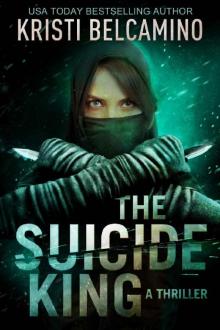 The Suicide King
The Suicide King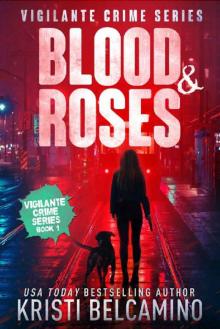 Blood & Roses (Vigilante Crime Series)
Blood & Roses (Vigilante Crime Series)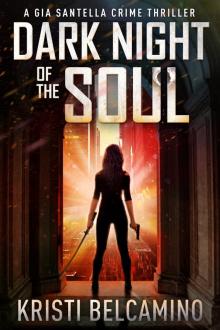 Dark Night of the Soul
Dark Night of the Soul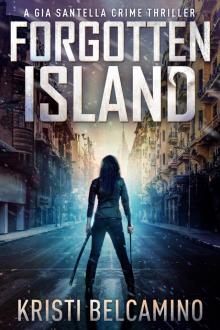 Forgotten Island
Forgotten Island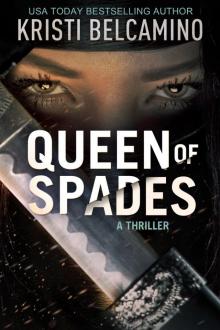 Queen of Spades
Queen of Spades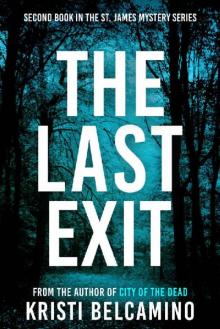 The Last Exit: A St. James Mystery (St. James Mysteries Book 2)
The Last Exit: A St. James Mystery (St. James Mysteries Book 2)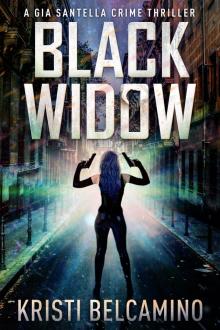 Black Widow
Black Widow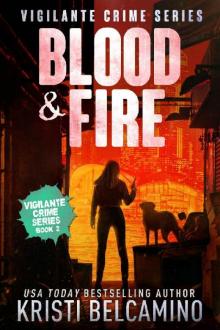 Blood & Fire (Vigilante Crime Series Book 2)
Blood & Fire (Vigilante Crime Series Book 2) End Game
End Game Buried Secrets
Buried Secrets Death on Sunset Hill (A Tommy St. James Mystery Novella Book 2)
Death on Sunset Hill (A Tommy St. James Mystery Novella Book 2)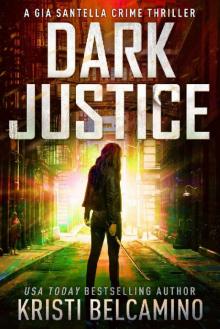 Dark Justice
Dark Justice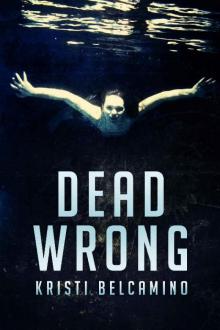 Dead Wrong
Dead Wrong No Way Out
No Way Out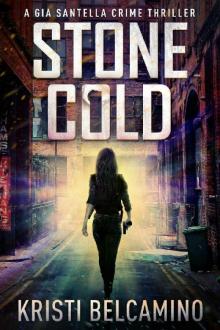 Stone Cold
Stone Cold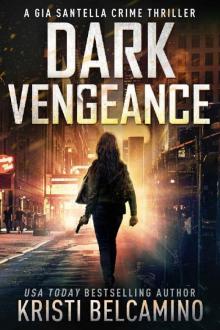 Dark Vengeance
Dark Vengeance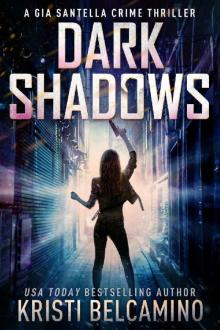 Dark Shadows (Gia Santella Crime Thrillers Book 11)
Dark Shadows (Gia Santella Crime Thrillers Book 11)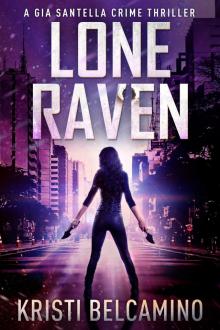 Lone Raven
Lone Raven![[Gia Santella 01.0] Gia in the City of the Dead Read online](http://i1.bookreadfree.com/i/03/16/gia_santella_01_0_gia_in_the_city_of_the_dead_preview.jpg) [Gia Santella 01.0] Gia in the City of the Dead
[Gia Santella 01.0] Gia in the City of the Dead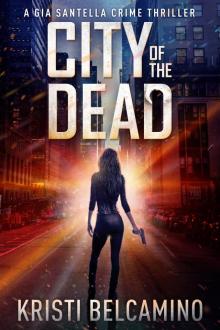 City of the Dead
City of the Dead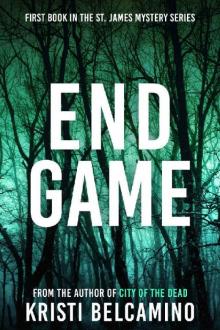 END GAME: A St. James Mystery (St. James Mysteries Book 1)
END GAME: A St. James Mystery (St. James Mysteries Book 1)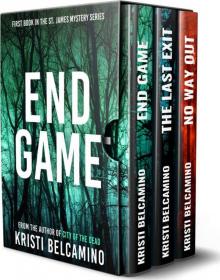 Tommy St James Mysteries Boxed Set
Tommy St James Mysteries Boxed Set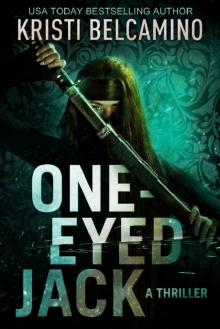 One-Eyed Jack
One-Eyed Jack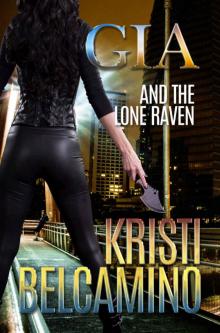 Gia and the Lone Raven
Gia and the Lone Raven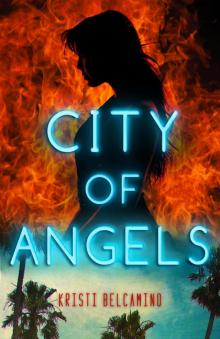 City of Angels
City of Angels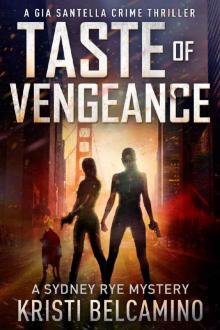 Taste of Vengeance
Taste of Vengeance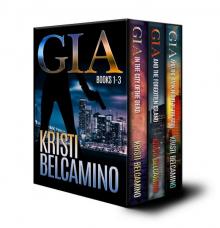 Gia Santella Crime Thriller Boxed Set: Books 1-3 (Gia Santella Crime Thrillers)
Gia Santella Crime Thriller Boxed Set: Books 1-3 (Gia Santella Crime Thrillers)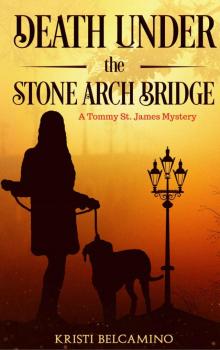 Death under the Stone Arch Bridge
Death under the Stone Arch Bridge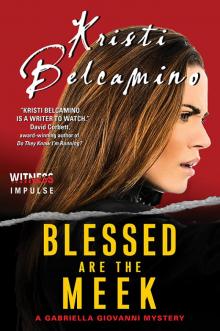 Blessed are the Meek
Blessed are the Meek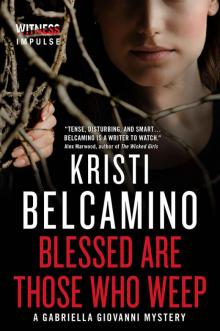 Blessed Are Those Who Weep
Blessed Are Those Who Weep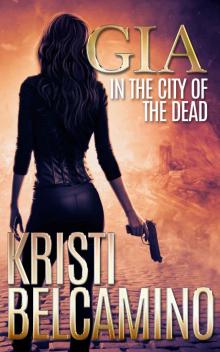 Gia in the City of the Dead
Gia in the City of the Dead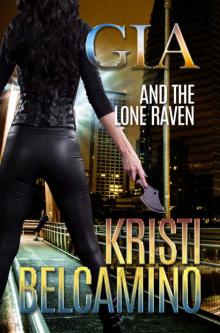 Gia and the Lone Raven (Gia Santella Crime Thriller - Novella Book 4)
Gia and the Lone Raven (Gia Santella Crime Thriller - Novella Book 4)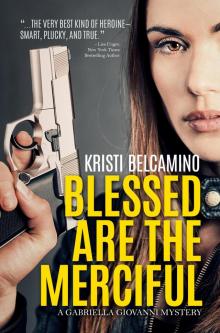 Blessed are the Merciful
Blessed are the Merciful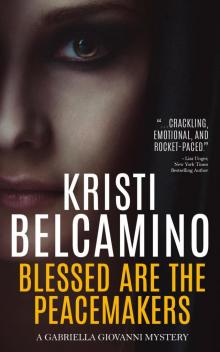 Blessed are the Peacemakers
Blessed are the Peacemakers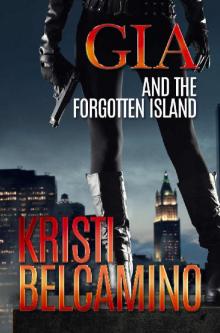 Gia and the Forgotten Island (Gia Santella Crime Thriller Book 2)
Gia and the Forgotten Island (Gia Santella Crime Thriller Book 2)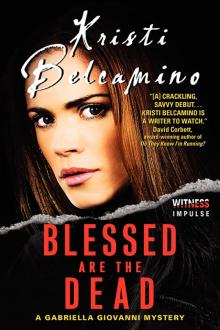 Blessed are the Dead
Blessed are the Dead Death on Sunset Hill
Death on Sunset Hill